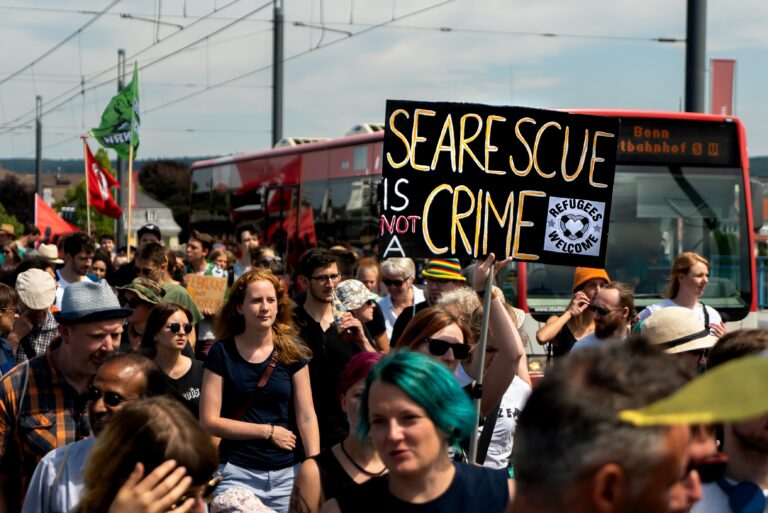A new study from the EU Parliament on the Facilitation Directive and the criminalisation of humanitarian assistance
The European Parliament published a study by the Parliament think tank on the facilitation directive and trends towards criminalisation of humanitarian assistance. The study, titled “Fit for purpose? The Facilitation Directive and the criminalisation of humanitarian assistance to irregular migrants” was commissioned by the European Parliament’s Policy Department for Citizens’ Rights and Constitutional Affairs at the request of the LIBE Committee. The study provides evidence of wide-spread criminalisation of civil society actors that have saved the lives of refugees and other migrants in the Central Mediterranean and Aegean Seas, and who have provided basic services and assistance upon their arrival – in the hotspots in Greece and Italy and in places of transit and residence in Belgium, Hungary and France. It takes stock of and evaluates the developments across the EU that have taken place since 2016 up until November 2018. It also provides examples of legislation or cases where humanitarian workers and other citizens or business are found guilty of a crime for helping or offering services to migrants.
In the final part of the study there is the following set of recommendations:
- the reform of the current EU legal framework should be reformed to i) bring it into full compliance with international, regional and EU human rights standards, in particular, those related to the protection of smuggled migrants; ii) provide for a mandatory exemption from criminalisation for ‘humanitarian assistance’ in cases of entry, transit and residence; and iii) use the financial gain element and include standards on aggravating circumstances in light of the UN Smuggling Protocol. Clarity and legal certainty should be the key guiding principles of this legislative reform.
- the obligation of Member States to put in place adequate systems to monitor and independently evaluate the enforcement of the Facilitators’ Package, and allow for quantitative and qualitative assessment of its implementation when it comes to the number of prosecutions and convictions, as well as their effects.
- the availability of funds for cities and civil society organisations to address the human rights, destitution and humanitarian needs of irregular migrants.
- firewall protections should be enshrined for irregular migrants to allow them to report human rights abuses and access public services without fear that they will immediately be reported to immigration authorities.
SOLIDAR has been strongly advocating for the decriminalisation of humanitarian assistance since 2015. Our members are constantly increasing their efforts in order to compensate for the lack of assistance and protection of migrants in Europe. It is for this reason that we welcome this study and we hope that it is going to be an evidence-based guide for the reform of the EU legislation on migration and for stronger legal support for the organisations working in the field. SOLIDAR also underlines the need for facilitation and support for civil society organisations. We urge that until safer channels for migrants are ensured, any person migrating to secure their fundamental rights should be not be considered illegal.



